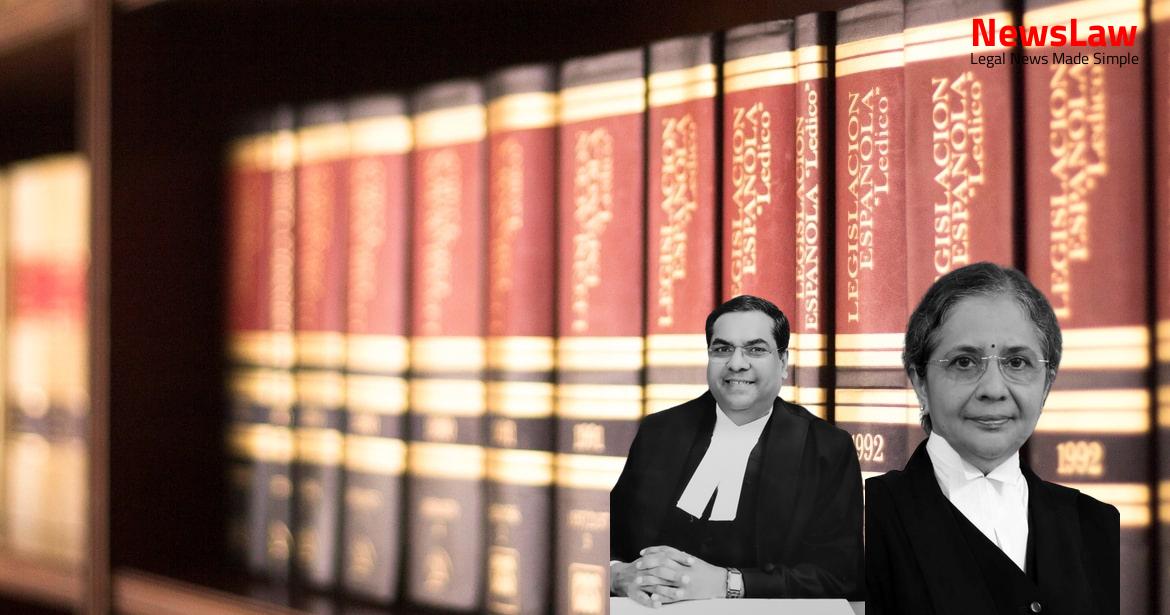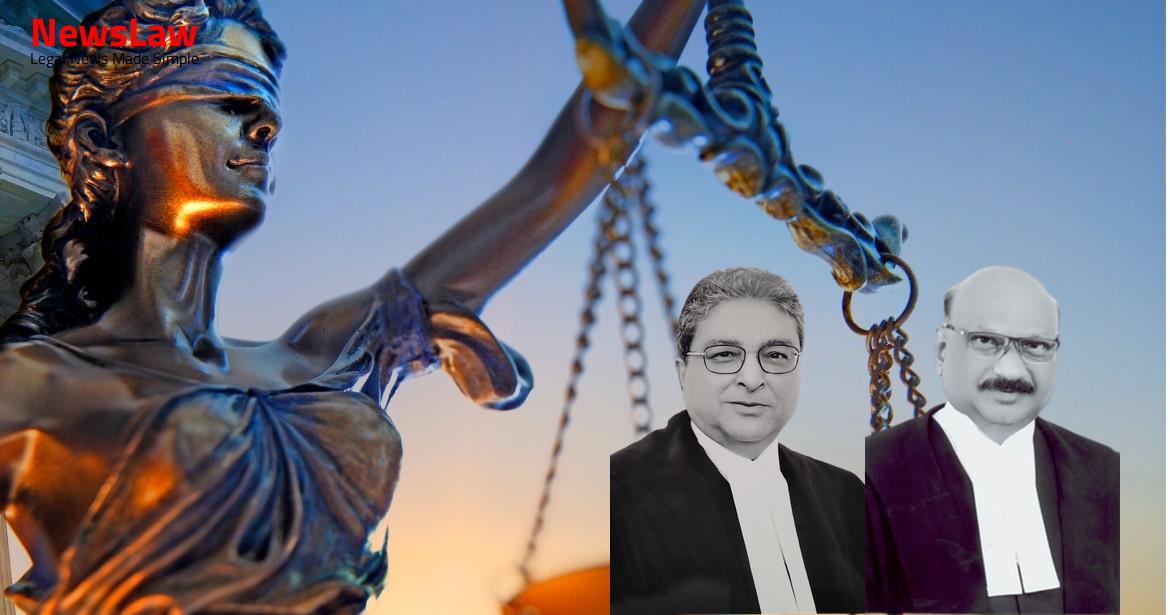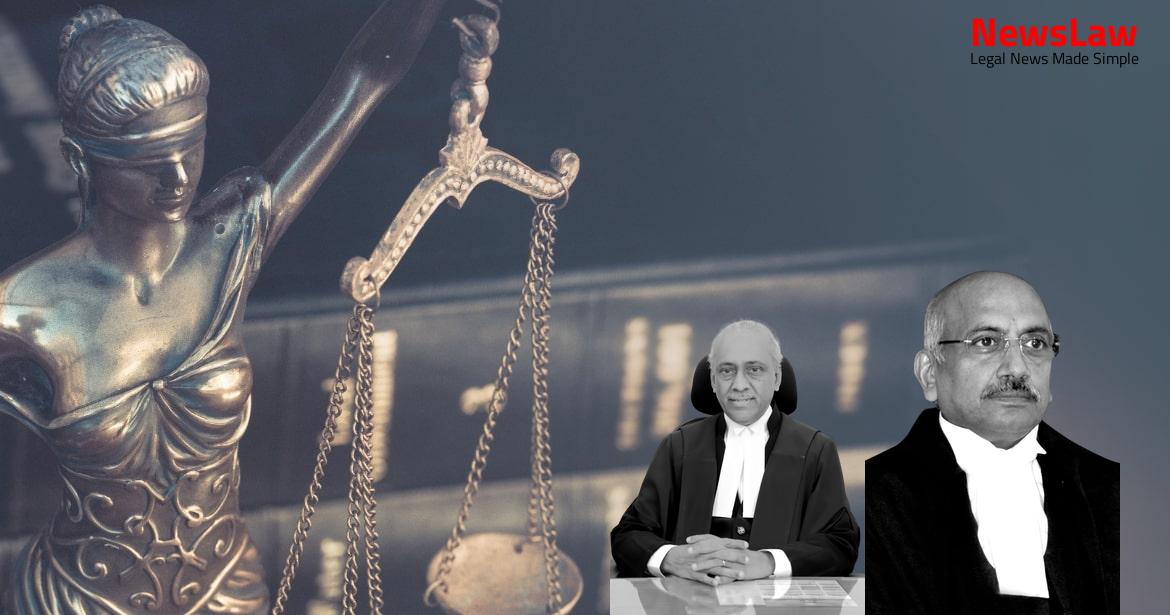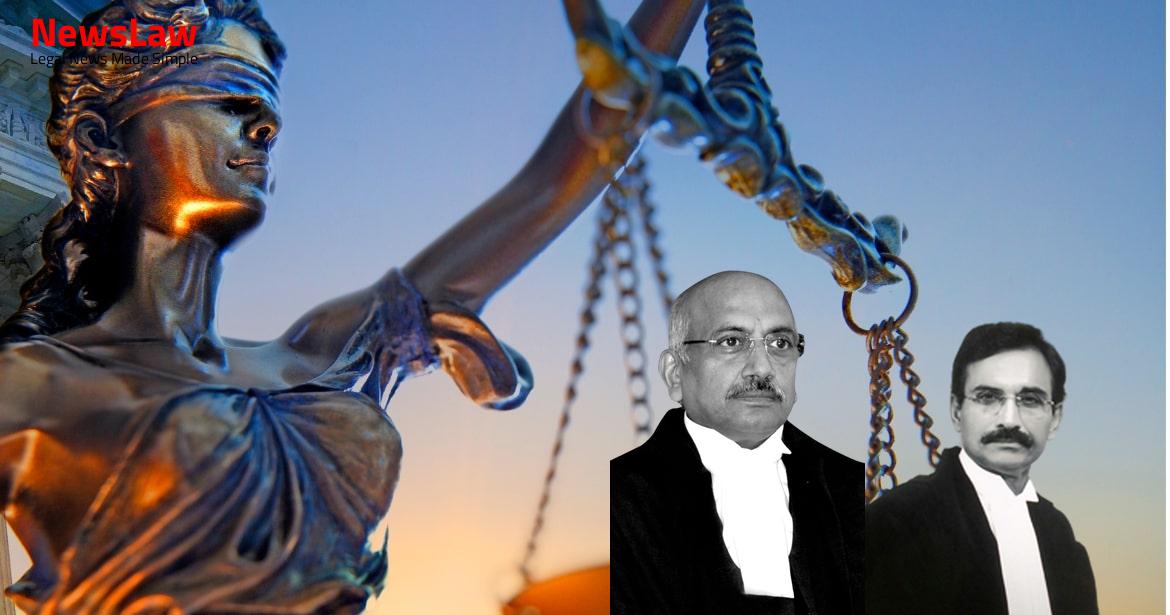The court’s legal analysis on a case involving disciplinary action in the police force sheds light on the boundaries of judicial review in matters of punishment. Upholding discipline within the forces is paramount, and the court’s scrutiny ensures that punishments are not grossly disproportionate. This summary delves into the nuances of the case where the appellate authority examined the adequacy of penalties imposed, emphasizing the importance of maintaining order and accountability within the police force.
Facts
- Respondent placed under suspension on 4 January 2000
- Charges established and proved in the enquiry
- Respondent filed Writ Petition before High Court of Odisha
- High Court judgment on 17 October 2011 deemed the order improper
- Failure to consider respondent’s application seeking extension of time
- Draft order prepared by subordinate staff, approved without due consideration
- Non-entitlement to pay and allowances except subsistence allowance
- Show Cause Notice issued for enhancement of punishment to dismissal
- Appeal made by respondent before Appellate Authority
- Period of suspension treated as non-duty until receipt of order
- Appellate Authority order dated 23 January 2001, dismissing respondent from service
- Appellant preferred cross-appeals before the Division Bench of the High Court of Orissa, disposed of by the impugned judgment dated 11 January 2018.
- The Disciplinary Authority, in an order dated 15 July 2000, agreed that charges were proved but imposed a lenient penalty of reduction of pay by two stages for three years with immediate effect.
- The respondent was directed not to earn any increment during the period of reduction.
- The Appellate Authority passed an order of dismissal on 18 February 2012 after the matter was examined following the remand.
- The Division Bench dismissed the appeal by the Union of India, affirming the punishment of reduction of pay imposed by the Disciplinary Authority.
Also Read: Analysis of Bail Conditions in Criminal Appeal No. INSC 48/2024
Analysis
- Rule 52 of CISF Rules, 2001 empowers the appellate authority to examine the adequacy of the penalty imposed.
- Judicial interference is possible if the punishment is grossly disproportionate to the fault.
- Writ jurisdiction is limited to correcting errors of law or procedural injustice.
- The court can review whether the punishment is reasonable and consider all relevant factors.
- The discretion in awarding punishment should not be perverse or grossly disproportionate.
- The appellate authority can enhance or reduce the penalty imposed by the disciplinary authority as per Rule 52 of CISF Rules, 2001.
- The punishment of dismissal was confirmed considering the seriousness of the misconduct.
- The respondent was entitled to 50% back wages from the period of suspension till the date of dismissal.
- The order of reinstatement of the respondent was upheld.
- Discipline in the police force is of utmost importance and cannot be compromised.
Also Read: Conviction Upheld for Murder and Concealment of Body
Decision
- The Order dismissing the respondent from service dated 18 February 2012 is upheld.
- The respondent is entitled to subsistence allowance from January 4, 2000, to July 15, 2000, at 50% of his salary.
- The appellants are liable to make this payment.
- The respondent is entitled to his salary as per the order dated July 15, 2000, until the order dated January 23, 2001.
- The respondent will receive subsistence allowance at 50% of his salary from January 24, 2001, to February 18, 2012.
- The appellants must make the payment within six weeks from today with 7% interest per annum for the delayed payments.
- The appellants must provide a detailed calculation of the payments to the respondent.
- The appeal is partly allowed and disposed of accordingly.
- The order dismissing the respondent from service was set aside by the High Court of Orissa on October 17, 2011.
- According to CISF Rules, the respondent is under suspension from January 23, 2001, to February 18, 2012, and is entitled to subsistence allowance for this period.
- The appellants must pay the subsistence allowance to the respondent and the payment will be made electronically to a bank account provided by the respondent.
Also Read: 1991 Decree Invalid: No Determination of Rights in Property Dispute
Case Title: UNION OF INDIA Vs. MANAGOBINDA SAMANTARAY (2022 INSC 231)
Case Number: C.A. No.-001622-001623 / 2022



